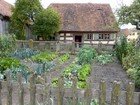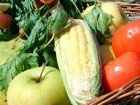Biodynamics Interview from the Biodynamic Agricultural Association UK
Interviewee: Bernard Jarman (Director)Company: Biodynamic Agricultural
Association (UK)
Date of Interview: 26/05/2009
http://www.biodynamic.org.uk
Firstly, we would like to thank you for agreeing to participate in this interview and sharing your thoughts and beliefs on a very interesting farming concept that has been around for some time. However, despite this, I am sure that there are many farmers and small plot owners who have never heard about Biodynamic farming.
1.) Could you please give us a brief overview of the concept of Biodynamics and what it is your organization hopes to achieve?
Biodynamic farming and gardening is the oldest consciously organic approach. It was inspired by a series of lectures given by Rudolf Steiner in 1924.
Key principles are:
- Work with and not against nature
- Stay within the living (no chemicals and artificials)
- Create a self-sustaining, closed system farm (home produced feed and fertility)- Enhance soil vitality
- Work with life rhythms of nature and cosmos- See life in its widest spiritual-cosmic context
The BDAA disseminates information about Biodynamic food and farming, trains Biodynamic farmers and gardeners, runs workshops and introductory days, operates the Demeter certification scheme (guaranteeing that Biodynamic methods are followed). There are Biodynamic organizations throughout the world which we are linked to.
New members are welcome to join as farmers, gardeners or simply as interested persons.
2.) To the man in the street, it may not be very different to organic farming, except with a spiritual element. Would you like to comment on this statement and also, could you tell us how Biodynamics can benefit the organic farmer who is already improving the soil with manures, exercising natural pest control and conscious of sustainable farming practices?
Biodynamic and organic farming have the common objective of using organic manures and composts to build up fertile and living soil and avoid all artificial fertilizers, GM material and poisonous chemicals. The Biodynamic concept embraces an understanding of nature and the human being which embraces not only soil biology and the ecosystem but also the primary spiritual forces working behind them. These include influences streaming in from the sun, moon and stars as well as those of the many diverse forms of life on our planet. Biodynamic practices aim to enhance the vitality of the soil, plants, animals and ultimately human beings. The key to doing this is by conceiving the whole farm as a living individualized organism.
Biodynamic measures can help organic farmers by providing tools for enhancing the health of their plants and animals, increasing soil vitality and producing wholesome well balanced and flavorsome food.
3.) Does the ritual of planting horns with various substances beneath the soil, and then retrieving them later on have any scientific research to prove that there are additional benefits to produce being grown with such practices?
Cow horns are used for making two special Biodynamic spray preparations. One is made by filling the horns with cow manure, the other with finely milled quartz. Both are placed in the soil for six months, one over winter , the other over summer. The first helps plants to root and find what they need from the soil, the second strengthens resistance and enhances ripening. Both have been used by Biodynamic farmers for nearly 90 years to good effect. Their positive effects have also been backed up by numerous experimental trials in various parts of the world.
4.) A number of vineyards have adopted this form of agriculture. Why do you think that this particular sector of agriculture appears to be using Biodynamics with such vigor, as opposed to others that have been more cautious in adopting your principles?
Wine is the one product whose quality is primarily determined by flavor. Time and again Biodynamic produce has been shown to have enhanced flavor. Local flavors are essential too and wine growers know that Biodynamic methods increase plant sensitivity and enable vines to draw up the minerals unique to the specific site resulting in special local flavors.
5.) Are there any limitations to Biodynamics?
I think Biodynamics has huge potential in many areas. It is applicable throughout the world and for all forms of agriculture, horticulture, sylviculture and land management.
6.) What does the future hold for Biodynamics? Is it just a fad, or is it here to stay?
The destructive consequences of current chemical intensive monoculture systems are apparent for all to see. The regeneration of our soils needs Biodynamic methods. This is huge future task. Biodynamic food is also important for the health of the population. Biodynamic is at the beginning of its development and will be need more and more in years to come.
**********************
Did you find this page helpful?
Sharing is a way of saying, "Thanks!"
Follow Us and Keep Up to Date
You can Add your own Comments, Tips and Ideas on Biodynamics and Biodynamic Farming Here!
We have lots of pages where you can contribute to throughout this homesteading website. We love hearing from our readers, and hope you will be one of those we hear from too. Look around our homesteading website. If you have some comments, tips, or ideas on Biodynamics and Biodynamic farming of your own, please submit them. All you need to do is type and submit. We will do the rest!
Leave a Comment
Do you have anything that you would like to add after reading this page? We would love to hear your thoughts. If you can add additional information to what has been written here you will be adding value to the website! No need to have any special skills - just type and submit. We will do the rest!








New! Comments
Do you have something of value to add? Leave me a comment in the box below.